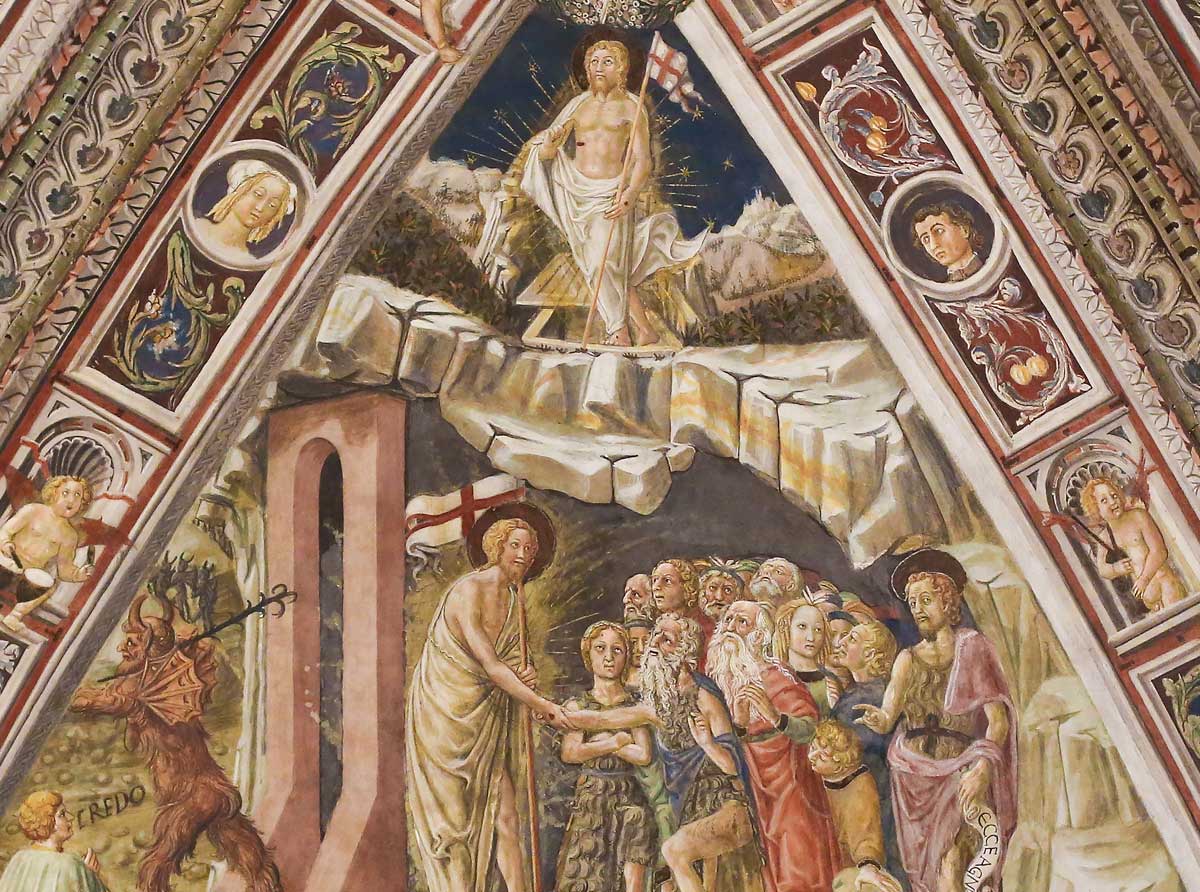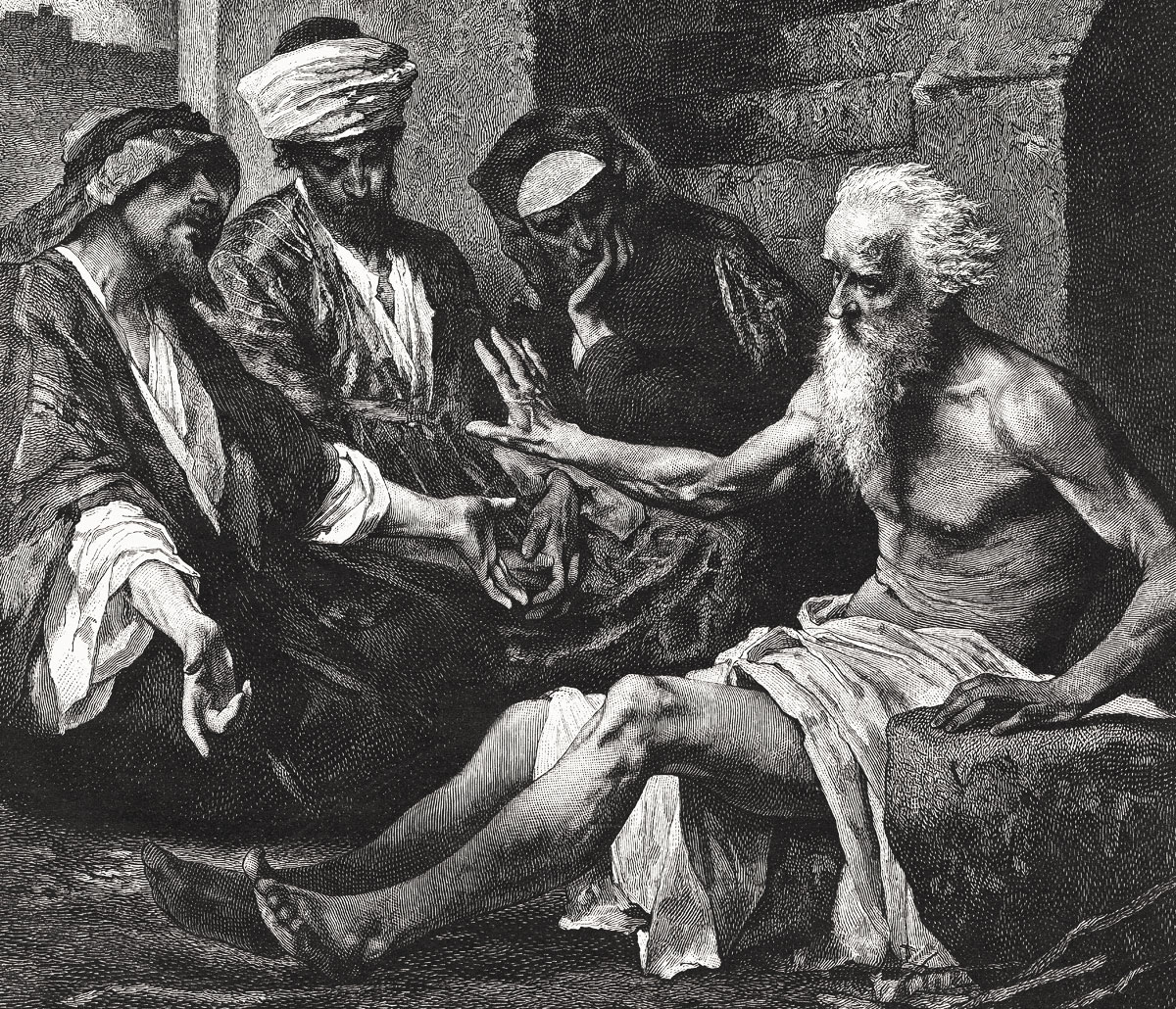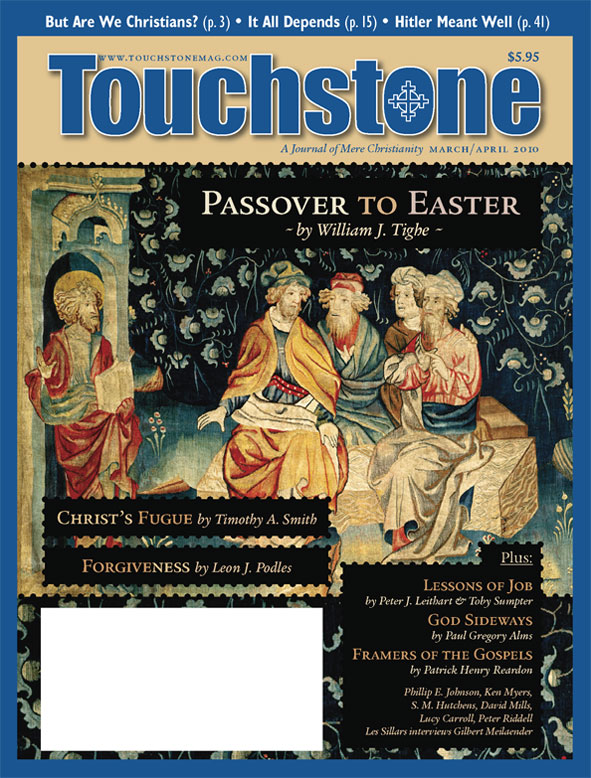View
Job’s Progress
Peter J. Leithart & Toby Sumpter on Maturity for a Rising Generation
Every generation must wrestle. It is not a question of whether, but of what: What will we wrestle about? Where will we struggle? How will we shed our blood? Sometimes the same struggles continue between generations, while other times the challenges shift with the passing of the guard. Some will face the massive weight of communism; others will set their flank against the encroachments of theological liberalism. One regiment faces the descendents of Pelagianism; another must defend the republic from terrorists.
It is common for a rising generation to tire of the old battles. It is happening today. Many younger Evangelicals today are confused, thinking, “Our fathers wrangled over prayer in public schools, church polity, abortion, worship styles, gay rights, and end-times prophecies. We’ve had enough of that. We’re ready for peace on those fronts. And often, we say we just want peace, period. Do we have to keep fighting? Do we have to keep wrestling? Why all the strife, all the divisions?”
Tired Protestants seek refuge from petty squabbles and increasingly splintered denominations in the perceived fortress of Roman Catholicism or Eastern Orthodoxy. Jaded Evangelicals defect from the Christian Right, and they join ranks with a more ideologically distant candidate, who nevertheless seems alive and hopeful, and exudes a peaceful and calming persona. He’s never served in the military, and for some, that’s to his credit. He’s not a fighter, and thank God for that, they say.
From Priest to Prophet
The book of Job issues a serious challenge to those who would avoid conflict. Job has rightly been seen as a biblical locus classicus on the problems of suffering and evil, but the narrative has many other layers. As Rene Girard has suggested in a typically brilliant and infuriating study, Job is a ruler, the three friends are court advisors, and the whole drama is as much a piece of public theology as anything from Aeschylus or Sophocles. To the rising generations who would rather not wrestle, the book of Job argues that they are shrinking back from maturity and ultimately avoiding the way of the Cross, the only way to real peace.
The surface story of wealth–loss–restoration is intersected by another story of progress and maturation. Job begins as a priest who offers sacrifices for his children who may have sinned (Job 1:5). By the end of the story, Job not only offers sacrifices but also prays for his three counselors, and God promises to hear him (42:8). At the beginning, Yahweh is talking with the Accuser, and Job is not among the “sons of God” who appear before Yahweh. By the end, the Accuser is nowhere to be found and Yahweh is speaking with Job. Job has been elevated to one who may speak to God, and he is assured that he will be heard. Job has become like Abraham who intercedes for others (cf. Gen. 20:7).
In becoming like Abraham, Job has become a prophet. Abraham Heschel long ago noted that Israel’s prophets were preeminently members of the divine council, and the story of Job, with its echoes of Genesis, confirms Heschel’s point. According to Genesis, offering prayer is a prophetic privilege (Gen. 20:7), and, like the prophets, Job is identified as the Lord’s “servant” (cf. Jer. 7:25; Ezek. 38:17). Job begins as a priest, but by the end, he has grown to prophetic stature.
Job’s exaltation anticipates Jesus, the greater Servant of the Lord, who learned obedience by what he suffered, who was qualified to intercede before the Father by his incessant debates with hostile opponents, who finally casts the accuser of the brethren from heaven. Job is the story of maturation from priest to prophet, from servant to divine advisor, and the drama shows that the pathway toward maturity is intense debate.
Into the Whirlwind
The question is, How does Job get there? How does he move from “outside” the council of Yahweh to “inside”? He doesn’t get there by rolling over and playing dead. Struck by the mighty hand of Yahweh, Job faces defeat and covers himself in ashes and dust of death. Yet he does not lay down his arms.
Peter J. Leithart is an ordained minister in the Presbyterian Church in America and the president of Trinity House Institute for Biblical, Liturgical & Cultural Studies in Birmingham, Alabama. His many books include Defending Constantine (InterVarsity), Between Babel and Beast (Cascade), and, most recently, Gratitude: An Intellectual History (Baylor University Press). His weblog can be found at www.leithart.com. He is a contributing editor of Touchstone.
subscription options
Order
Print/Online Subscription

Get six issues (one year) of Touchstone PLUS full online access including pdf downloads for only $39.95. That's only $3.34 per month!
Order
Online Only
Subscription

Get a one-year full-access subscription to the Touchstone online archives for only $19.95. That's only $1.66 per month!
bulk subscriptions
Order Touchstone subscriptions in bulk and save $10 per sub! Each subscription includes 6 issues of Touchstone plus full online access to touchstonemag.com—including archives, videos, and pdf downloads of recent issues for only $29.95 each! Great for churches or study groups.
Transactions will be processed on a secure server.
more on culture from the online archives
more from the online archives

14.6—July/August 2001
The Transformed Relics of the Fall
on the Fulfillment of History in Christ by Patrick Henry Reardon
calling all readers
Please Donate
"There are magazines worth reading but few worth saving . . . Touchstone is just such a magazine."
—Alice von Hildebrand
"Here we do not concede one square millimeter of territory to falsehood, folly, contemporary sentimentality, or fashion. We speak the truth, and let God be our judge. . . . Touchstone is the one committedly Christian conservative journal."
—Anthony Esolen, Touchstone senior editor













